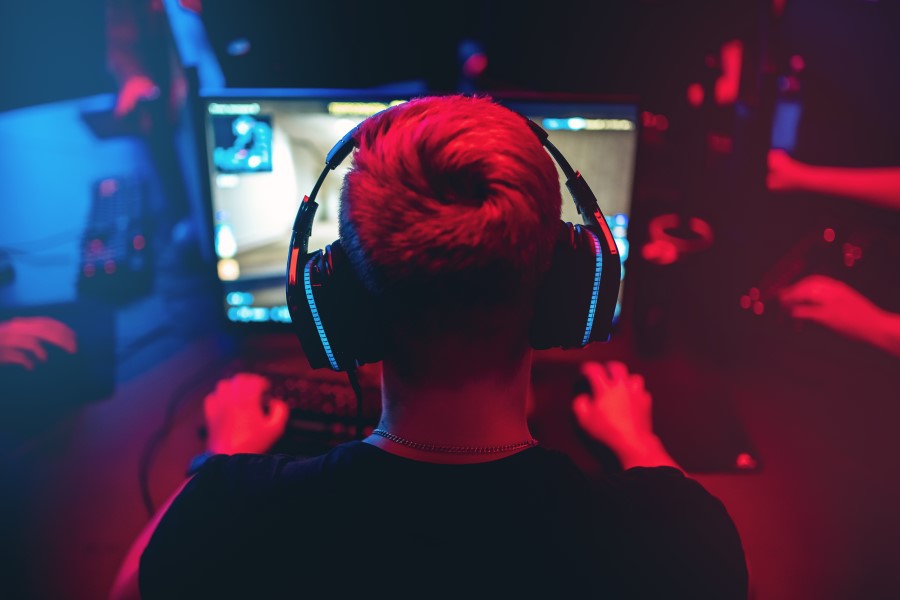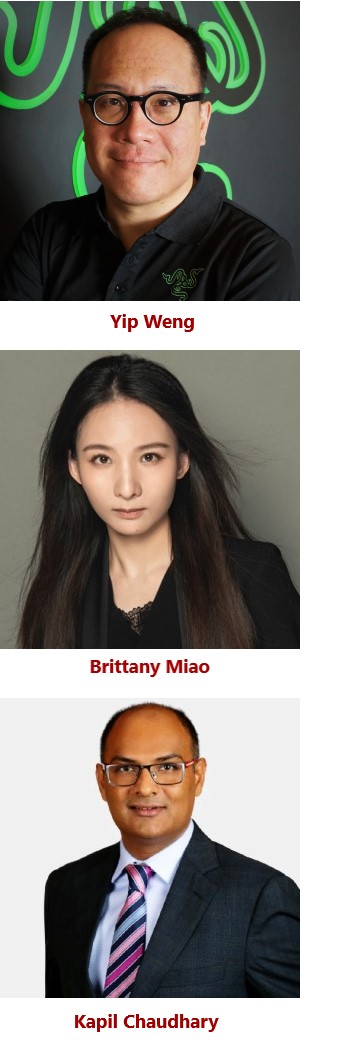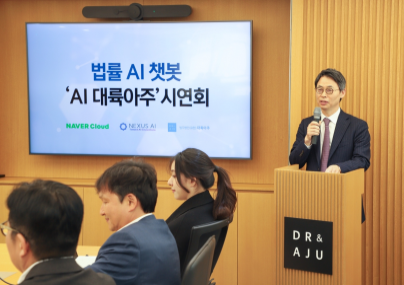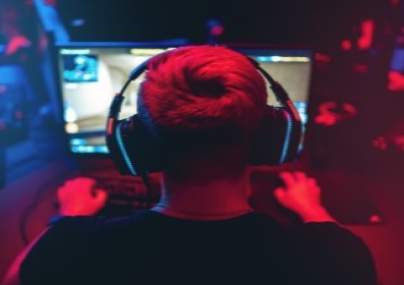
Emerging technologies such as blockchain and artificial intelligence have not only reshaped the interface of videogames but also given rise to novel legal issues by calling into question traditional legal concepts while raising risks of online safety and data privacy. General counsel at videogame companies discuss the opportunities and challenges these shifting consumer behaviours and regulatory hurdles pose.
ALB: How do you anticipate legal and regulatory challenges, such as intellectual property disputes, privacy concerns, and gaming regulations, impacting the gaming industry in your jurisdiction(s), and what strategies are you implementing to address them?
 YIP WENG, legal vice president, Razer: Over the years, we have seen an increasing awareness of consumer safety and protection need. Gamers may be minors and/or vulnerable children, and some games may carry unwholesome images or excessive violence. The game industry has been relatively self-regulating, and rating standards tend to be voluntarily adopted by game publishers (e.g., ESRB in U.S. and PEGI in Europe). By contrast, censorship standards and ratings for scripted content (e.g., movies and TV shows) are more structured.
YIP WENG, legal vice president, Razer: Over the years, we have seen an increasing awareness of consumer safety and protection need. Gamers may be minors and/or vulnerable children, and some games may carry unwholesome images or excessive violence. The game industry has been relatively self-regulating, and rating standards tend to be voluntarily adopted by game publishers (e.g., ESRB in U.S. and PEGI in Europe). By contrast, censorship standards and ratings for scripted content (e.g., movies and TV shows) are more structured.
In recent years, we have seen regulators become increasingly interventionist. There have been games banned outright or censored in certain jurisdictions. In this connection, some new laws and regulations seek to regulate undesirable content (such as games promoting gambling and/or other addictive elements).
From the privacy and data protection perspective, games are increasingly integrated across separate but connected platforms (e.g., social media platforms; live streaming platforms, and payment platforms.) This way, consent to and/or justification of personal data usage increasingly involves cross-platform issues. From a privacy perspective, this means that data registers become increasingly complex. Often, it is far simpler (and wiser) not to collect or process any personal data at all.
At Razer, we take these issues very seriously as a participant in the gaming ecosystem, though not as the game operator or creator directly responsible to the end user. This is because Razer offers the customer an ecosystem of hardware, software and services that support the gamers’ lifestyle surrounding the games. Hence, we perceive these issues from an ecosystem perspective, not an in-game perspective.
BRITTANY MIAO, general counsel, Long Tech Network: Intellectual property protection has always been a priority of the legal work for video game companies. Video games involve complex elements such as computer programs, artwork, written works, music, trademarks, UI designs, unique gameplay that may be patentable, and more. Violations of these elements can occur in the business operations of game developers and publishers in many ways, such as reselling game skins and props, plagiarising advertisements, and skin-changing games.
To address these challenges, I usually recommend that game companies prepare for intellectual property protection before the game goes online. This includes trademark application for the game name, filing and registration of software copyright, and copyright registration of artworks for game characters and scenes. These preparations can prevent counterfeiting and infringement and prevent unfair competition when necessary. Additionally, when game companies release games through channels such as the App Store and Google Play, these channels strictly review the IP of the package submission, and the IP ownership documentation or authorisation chain shall be intact and complete so as not to delay the launch time of the games on these channels.
As governments of various countries have issued laws and regulations to protect privacy and because of the relevant publication, I can clearly feel players’ awareness of privacy protection has increased in recent years, and we have taken steps to protect our players’ privacy. For example, we collect and process only the minimum necessary information from our players, and we generally do not collect personal information for playing our games unless required by policies and regulations in certain jurisdictions. For jurisdictions that curb gaming addiction and require age verification, we collect relevant personal information, which is carefully managed through an information management system with the highest level of security protection. Furthermore, we have set up a dedicated team to handle privacy protection-related requests and developed an efficient process with the customer service team. By proactively addressing these legal and regulatory challenges, we can ensure that our gaming operations comply with these regulations while providing a seamless and enjoyable experience for our players.
KAPIL CHAUDHARY, general counsel, Junglee Games: There are several legal and regulatory challenges in the gaming industry in India. Intellectual property disputes can arise over game titles, character designs, game mechanics, IP licensing, usage rights, exclusivity, sub-licensing rights, assignment of rights, and IP ownership, among others. Privacy concerns may arise due to the collection, storage, and use of users’ personal data.
Parental consent in the case of minor users is of paramount importance. While India does not have a comprehensive data protection law yet, we have ensured that we are transparent with our users regarding their data usage and that we comply with the requirements under the law. India’s new central regulations envision self-regulation as the way forward for the online gaming industry in India.
Gaming regulations can pose challenges to the industry, especially when dealing with state-specific legal compliances, central regulations, foreign investments, advertising, etc. We believe in proactively addressing these challenges by staying updated on the latest legal developments and regulatory requirements. We work closely with our partners, stakeholders, and the government to ensure compliance. Our legal team has created a robust end-user licensing agreement/term of use and regularly reviews our policies and guidelines to ensure they align with the latest legal requirements. We also engage with industry groups and relevant stakeholders to stay informed about latest industry developments and challenges. Finally, we have a robust internal process for addressing legal issues and disputes, including working with outside counsel when necessary.
ALB: As the general counsel of a company in the video game industry, how has your role evolved in recent years to adapt to the changing landscape of the industry, including emerging technologies, global markets, and shifting consumer expectations?
WENG: The “video game lawyer” – if indeed such a creature exists – is, in my view, a technology lawyer with a sense of fun and curiosity. He (or she) must understand game design, and the whole game ecosystem to which it relates.
Apart from encompassing a target audience comprising the gamer community, a game ecosystem would include other elements such as online social media and communication platforms, hardware game peripherals, and in-game payment services. It is a largely B2C business.
Such a lawyer must be very sensitive to legal issues surrounding the end user who is a gamer. Like all forms of entertainment, games have evolving trends, genres, and business models, referred to as the “flavour of the month.” There is a need to embrace constant change.
MIAO: As the legal landscape of the video game industry continues to evolve, the role of in-house legal experts must adapt accordingly. In the face of emerging technologies, global markets, and changing consumer expectations, legal compliance must be a continuous and dynamic process, tailored to the needs of the business.
Technological innovation drives the promotion of games, such as newsfeeds and game live broadcasts, and necessitates compliance obligations that are distinct from traditional marketing methods. Legal professionals are suggested to collaborate closely with colleagues in operation and marketing, who are at the forefront of using these technologies, to gain an understanding of the business links involved and identify the underlying legal issues that require attention.
Overall, the goal is to provide players with a better gaming experience while respecting local laws and regulations. Legal professionals shall be adaptable, collaborative, and forward-thinking to successfully navigate the rapidly changing video game industry.
CHAUDHARY: The first aspect is embracing emerging technologies. With the advent of new technologies such as virtual reality (VR), augmented reality (AR), and blockchain, my role involves closely monitoring these advancements and assessing their legal implications. Then, there is the navigation of global markets. The gaming industry has become increasingly globalised, and as general counsel and part of Flutter International’s Legal, Risk and Compliance teams, I play a vital role in navigating the legal complexities of operating in multiple jurisdictions. This includes understanding and complying with various countries’ local laws, regulations, and cultural sensitivities.
Additionally, I’m managing regulatory compliance. With the growth of the gaming industry, regulatory bodies have strengthened their oversight. I actively monitor and interpret gaming regulations, ensuring our company remains compliant. Another aspect is addressing consumer expectations. Consumer expectations have shifted towards increased transparency, fairness, and data privacy. I work closely with other departments to ensure our company’s practices align with these expectations. Finally, I need to handle IP issues, as intellectual property is a critical asset for gaming companies.
ALB: What are some key legal considerations in negotiating and drafting licensing agreements, publishing contracts, and other business arrangements within the video game industry?
WENG: Typical issues include intellectual property and consumer protection requirements.
In recent years, GDPR and similar data protection laws have seen an increase in privacy and information security considerations. With the increasingly cloud-based nature of games-as-a-service, unauthorised copying, or piracy has become less acute. Rather, nowadays, marketing rights clearances can be very rigorous, and in this respect, game studios can often be similar to content studios in their marketing scrutiny and approvals.
Digital marketing campaigns are also increasingly complex; apart from traditional eyeball attention-seeking ads, nowadays there are subtler forms of marketing such as (a) live game streamers who act as KOL influencers; (b) in-game item rewards, and (c) other forms of loyalty programmes that keep the gamer “sticky.” In these examples, creative drafting is needed to describe technology in the form of a legal obligation.
At the same time, legal drafting often has to be “agile.” Not every milestone or deliverable can be comprehensively described in an agreement. Often, game-related agreements may involve a preliminary “proof of concept” phase and/or some experimentation. So, in the spirit of agile contracting, sometimes the lawyer must focus on an enforceable procedure to allow parties sufficient flexibility to be creative, instead of rigidly defining the exact substance of the contractual obligation.
To mitigate against the obvious risks of such an approach, we try to scenario plan to allow “easy exit” termination, and/or generally cater for a mutually acceptable “plan B” in the agreement. Obviously, a limitation of liability clause would help – if mutually agreeable! These all mean that the contracting process would require parties to foresee both success and failure.
MIAO: From my perspective, for different business arrangements in the video game industry, there are various factors to consider. For instance, when collaborating with a popular U.S. TV series, we needed to obtain prior authorisation for using the series’ content and trademarks from the copyright owner to adapt into the game. However, we noticed that this licensing agreement did not authorise the use of the actor’s likeness. We assessed the similarity between the to-be-made game characters and the actors’ likeness in the show and concluded that we indeed require to use the actor likeness and should obtain actors’ consent in advance. Our goal is to avoid any unauthorised situations during adaptation and marketing.
To ensure that our company’s interests are protected while fostering collaborative relationships with partners, we implement a KYC review and Code of Conduct for partners, conduct business ethically and transparently, and jointly check with business departments, finance experts, and legal experts to determine the rationality of the business. We clarify our expectations for partners, control risks, and honour our agreements to create a win-win situation for both parties.
CHAUDHARY: Negotiating and drafting licensing agreements within the gaming industry requires careful consideration of several legal issues. One of the most important legal considerations in video game licensing agreements is the ownership and protection of intellectual property rights. Ensuring that the company has the exclusive rights to use, modify, and distribute the licensed content is essential. It is crucial to establish a clear and concise royalty structure (if applicable), including the percentage of revenue to be paid to the licensor, the timing of payments, and the payment method. Representations and warranties regarding the ownership of the licensed content, the absence of third-party rights, and the accuracy of any financial or performance data have to be carefully drafted and negotiated.
To ensure that the company’s interests are protected while fostering collaborative relationships with partners, it is important to approach negotiations collaboratively and respectfully. This involves establishing a positive relationship with the other party, listening to their concerns and needs, and proposing mutually beneficial solutions to any issues. It is also important to thoroughly understand the other party’s business and industry, including their goals, challenges, and competitive landscape.
ALB: With the increasing prevalence of online multiplayer games, virtual reality experiences, and e-sports competitions, what legal and regulatory challenges do you anticipate in the areas of user-generated content, player behaviour, and virtual property rights, and how do you plan to navigate these complex issues?
WENG: Games are becoming ever more realistic and interactive on a massively multiplayer scale. Virtual environments online increasingly reflect “virtual equivalents” of legal issues in our physical world. For example, (a) in-game con-duct may amount to online harassment or cyberbullying; (b) in-game loot boxes may, in certain jurisdictions, be considered a form of online gambling; (c) in-game AI can be capable of impersonation; and (d) game-related transactions and payment services evolve to become financial services.
With blockchain-based games, the notion of property inside a game environment has been gathering steam. As with all property rights, you can imagine disputes relating to legal title, and related concepts such as misappropriation. Although sums at stake inside games are typically small and long tail in nature, the advent of the blockchain has shown us that parties may litigate in the courts for huge amounts relating to NFTs. It remains to be seen where the commercialisation of blockchain-based games will lead to high-stakes legal disputes.
MIAO: User-generated content and player behaviour are not easy to supervise, as they are beyond game companies’ control. Users may unknowingly upload content that violates copyright and privacy issues, leading to legal disputes. One strategy is to prohibit specific behaviours in the guideline and ask users to agree before uploading the content and remind users regularly.
For certain events and campaigns, internal review can approve submissions before going online. If an infringement is later found after going online, it shall be taken down. Trading game accounts, or properties through a third party is strictly prohibited in the Terms of Services of the game to prevent account theft or loss, noting that the remedies after disputes are limited. Players are encouraged to report illegal transactions of virtual properties.
CHAUDHARY: In the area of user-generated content, there is a risk of copyright infringement and other intellectual property violations. Gaming companies must implement effective policies and procedures to ensure that user-generated content does not infringe on the rights of third parties. This includes implementing automated content recognition technologies, establishing clear guidelines for user-generated content, and providing clear and conspicuous notice of copyright infringement policies. The users are required to be made aware of the consequences of creating unlawful content.
Player behaviour is also a significant concern, with issues such as cyberbullying, hate speech, and cheating. Similarly, virtual property rights are another complex issue, as players may invest significant time and money into acquiring virtual assets. Gaming companies must establish clear ownership rights and transferability rules for virtual assets, as well as provide clear and conspicuous notice of these policies.
To navigate these complex issues, our legal team works to develop comprehensive policies and procedures that address these concerns. This includes implementing effective technological solutions, providing clear and conspicuous notice of policies to the user, and enforcing penalties for violations. It also involves staying up to date with the evolving legal and regulatory landscape and adopting policies and procedures accordingly. Ultimately, by taking a proactive approach to these challenges, gaming companies can foster and promote safer and responsible gaming.


